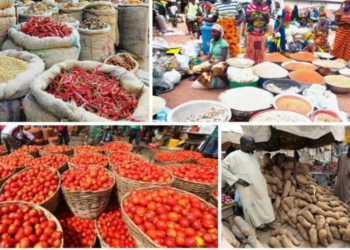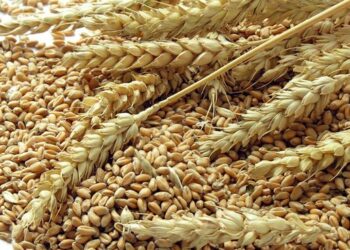Based on the selected food price watch data for August 2020 released by the National Bureau of Statistics (NBS), major consumer staples showed substantial increases between August 2019 (when the land border closure took effect) and August 2020. The steep price increases across the food items is consistent with the increase in food inflation from 13.17% in August 2019 to 16.0% in August 2020. Of more concern is the fact that rice, the most
widely consumed food staple among consumers showed substantial increase in the two variants; local sold loose (up 37.5% y/y) and imported high quality sold loose (up 40.7% y/y).
Explore the Nairametrics Research Website for Economic and Financial Data

READ: Nigeria among countries to be worst hit by food crisis globally
In our view, the predominant factor behind the surge in the prices of major food items is the closure of the land borders, which has been exacerbated by administrative controls employed by the monetary and fiscal authorities in rationing foreign exchange. We recall that in July, the CBN included Maize on the list of items ineligible for FX from official sources. Recently, President Muhammadu Buhari ordered the Central Bank of Nigeria (CBN) not to allocate foreign exchange to importers of food and fertilizer. We also understand that heavy rainfalls in the northwestern part of the country have also affected farmlands, as the head of Kebbi state branch of the Rice Farmers Association of Nigeria revealed that about 90% of the 2 million tons of rice to be harvested were destroyed.
READ: Has the President erred in stopping CBN from funding food imports?
The persistent increase in the prices of food items despite the protectionist measures implemented by the government suggests that local production still lags consumption significantly. Considering the weak harvest season due to the impact of the global pandemic amidst higher distribution costs linked to higher PMS prices following the deregulation of the downstream sector, we believe price of food items will continue to trend upwards.
Additionally, we expect the pass-through impact of the devaluation in the local currency to put further pressure on imported food inflation. Overall, we think the government needs to review the protectionist measures in place in order to avert a food crisis.
CSL Stockbrokers Limited, Lagos (CSLS) is a wholly owned subsidiary of FCMB Group Plc and is regulated by the Securities and Exchange Commission, Nigeria. CSLS is a member of the Nigerian Stock Exchange.























